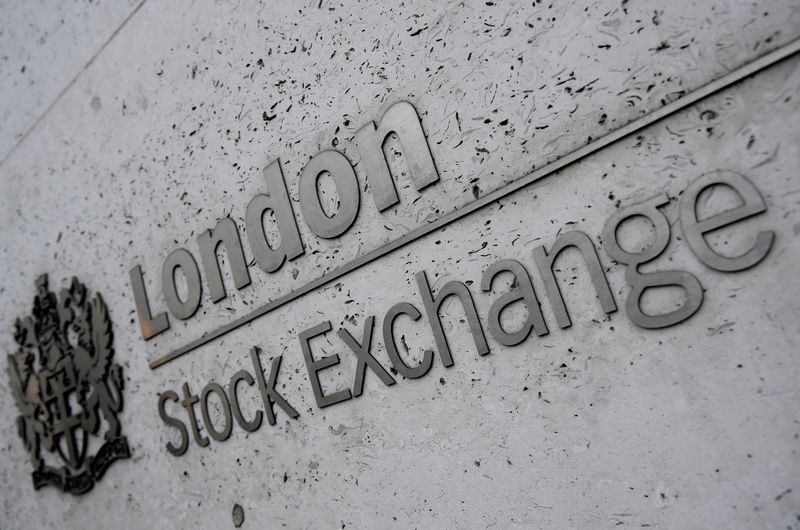By Siddarth S, Rupali Chaudhary and Khushi Singh
(Reuters) -UK's FTSE 100 fell on Friday in a broad-based selloff after data showing the British economy registered unexpected growth in the second quarter, raising speculation of more interest rate hikes from the Bank of England (BoE).
The export-oriented FTSE 100 shed 1.2%, coming off its highest closing level in a week hit in the previous session on data showing a moderate rise in U.S. consumer inflation.
The more domestically focussed FTSE 250 fell 1% with both indexes logging marginal weekly declines.
Official data on Friday showed Britain's economy grew 0.2%, against the consensus of a flat reading in a Reuters poll of economists, sending sterling and 10-year gilt yields higher.
"The euphoria that we saw with the inflation numbers coming lower is fizzling out and UK gilts and yields have edged up today, indicating there is a general sense across the market that the interest rate hikes haven't yet fully played out," said Susannah Streeter, senior investment and markets analyst at Hargreaves Lansdown (LON:HRGV).
The BoE raised its key interest rate by 25 basis points to a 15-year peak of 5.25% last week, and warned that borrowing costs were likely to stay high for some time.
Lender and brokerage J.P.Morgan raised its forecast for the UK's annual economic growth following the GDP data.
Twenty-three out of 24 UK sub-indexes were lower with rate-sensitive real-estate stocks among top losers, falling 2.2%.
The mining index dropped 1.9% as base metal prices fell on concerns around the sluggish nature of top consumer China's post-pandemic recovery.

Among individual stocks, Tesco (LON:TSCO) dipped 1.4% after the supermarket group said it would reduce the number of branded items in key product areas in its convenience stores.
Bucking the trend, shares of EMIS surged 25% after Britain's competition regulator said it has provisionally cleared UnitedHealth (NYSE:UNH) Group's 1.24 billion pound ($1.58 billion) acquisition of the healthcare technology firm.